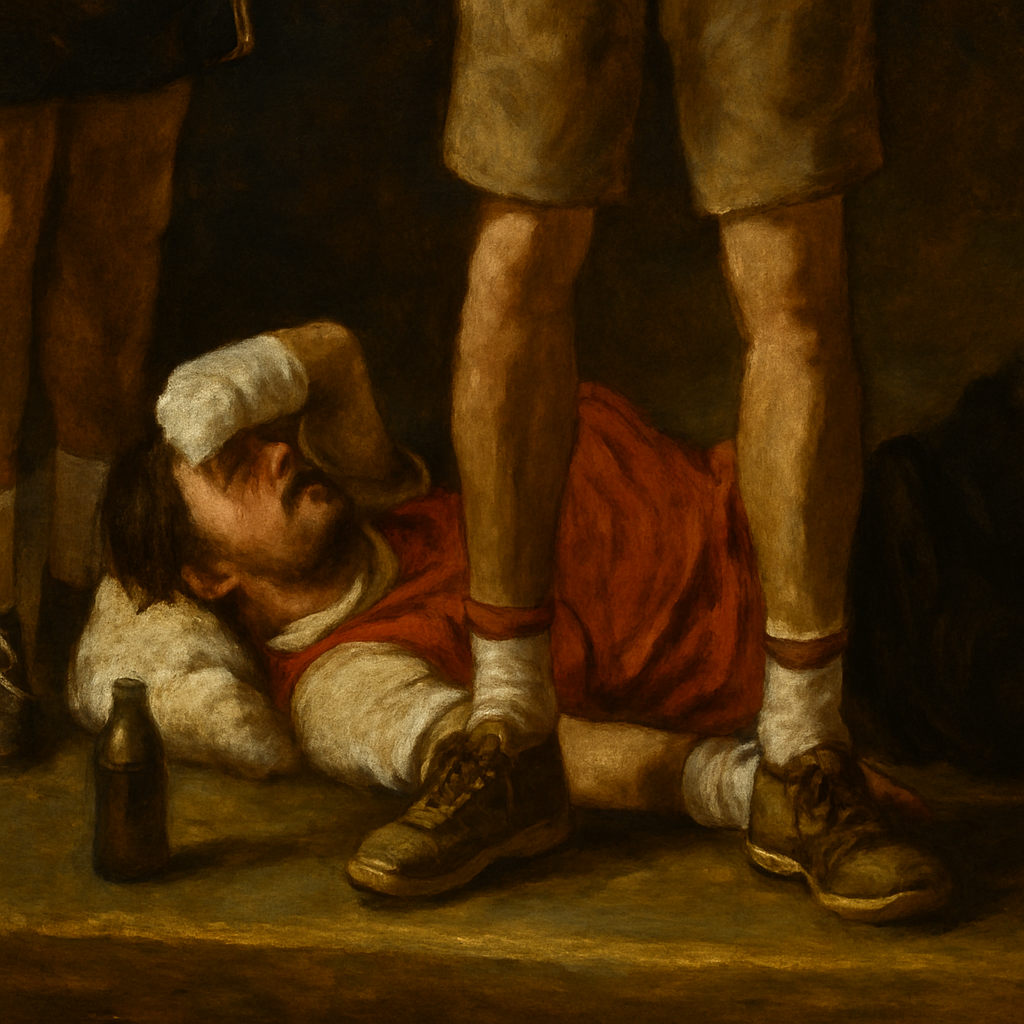CINCINNATI — French tennis player Arthur Rinderknech collapsed on court during his Cincinnati Open match against Felix Auger-Aliassime on Tuesday, succumbing to the sweltering heat before retiring from the contest. The incident highlighted the extreme conditions players faced during the tournament, with temperatures soaring above 90°F (32°C) and humidity making it feel even hotter.
The Incident: Rinderknech's Collapse
Rinderknech, ranked No. 73 in the world, was trailing 6-4, 1-0 when he suddenly collapsed behind the baseline during a changeover. Medical personnel rushed to his aid as he lay on the court, visibly distressed. After several minutes of treatment, the 28-year-old attempted to continue but was ultimately forced to retire. "I couldn't breathe anymore," Rinderknech later explained in a post-match interview. "My legs gave out, and everything went black."
Auger-Aliassime, who had been playing solidly in the oppressive conditions, expressed concern for his opponent. "It's never easy to see someone go down like that," the Canadian said. "The heat was brutal today, and Arthur gave everything. I hope he recovers quickly."
Extreme Weather Conditions
The Western & Southern Open, held annually in Cincinnati, is known for its challenging summer weather. This year, however, conditions were particularly severe, with the heat index reaching dangerous levels. Tournament organizers implemented additional measures to protect players, including:
- Extended breaks between sets
- Increased availability of ice towels and cooling stations
- Encouraging players to use umbrellas for shade during changeovers
Despite these precautions, multiple players struggled with the heat throughout the week. Rinderknech's collapse was the most dramatic incident, but others, including top seed Carlos Alcaraz, admitted to feeling the effects. "It's tough out there," Alcaraz said after his match. "You have to be smart and hydrate constantly."
Medical Response and Player Safety
The ATP and WTA have strict heat policies, but enforcement varies by tournament. In Cincinnati, the wet bulb globe temperature (WBGT)—a measure that accounts for heat, humidity, and solar radiation—determines whether additional precautions are necessary. On Tuesday, the WBGT approached critical levels, prompting officials to allow players extra time between points.
Dr. Alejandro Soto, a sports medicine specialist, emphasized the risks of playing in such conditions. "Heat exhaustion can escalate rapidly into heat stroke, which is life-threatening," he warned. "Players push their bodies to the limit, and in extreme heat, the cardiovascular system can't keep up."
Rinderknech's Recovery
After receiving immediate medical attention, Rinderknech was taken to a nearby hospital for further evaluation. He was later released and confirmed to be in stable condition. In a statement, his team thanked the tournament medical staff and assured fans that he would take time to recover before his next event.
Broader Implications for Tennis
Rinderknech's collapse reignited discussions about player safety in extreme weather. Some have called for more consistent heat rules across tournaments, while others suggest scheduling changes to avoid peak temperatures. The US Open, set to begin later this month, has faced similar challenges in recent years and may need to reassess its policies.
Former player and commentator Brad Gilbert noted the growing concern. "We’ve seen too many players suffer in these conditions," he said. "It’s time for the sport to prioritize health over tradition."
Conclusion
Arthur Rinderknech’s collapse was a stark reminder of the dangers posed by extreme heat in professional tennis. While the sport has made strides in player safety, incidents like this highlight the need for further action. As climate change leads to more frequent heatwaves, tournaments may need to adapt to protect athletes.
For now, Rinderknech’s focus is on recovery. His resilience and determination have earned him widespread support, and fans will be eager to see him back on court soon—hopefully under safer conditions.

